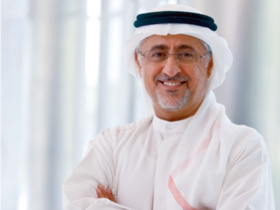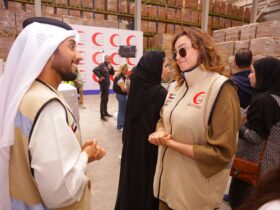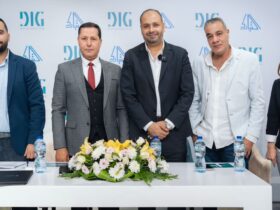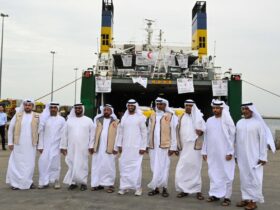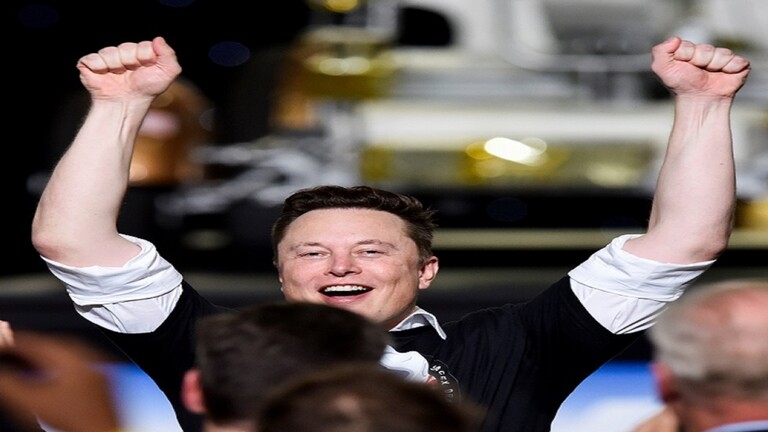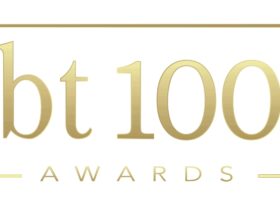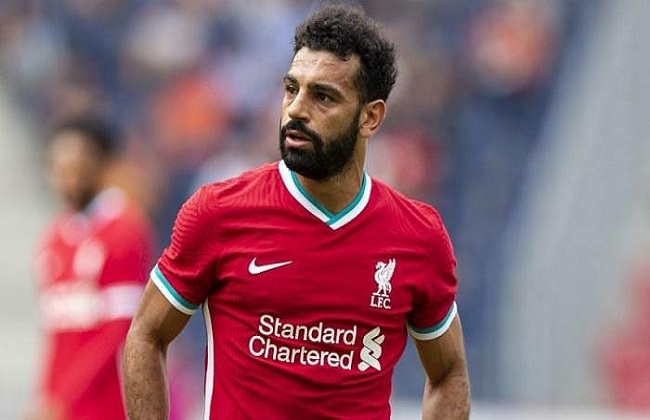Dubai – Masaader News
Dubai International Financial Centre (DIFC), the leading international financial hub in the Middle East, Africa and South Asia (MEASA) region, reported today that it has achieved sustained growth of its financial community with the total number of registered companies from all over the world rising by 12% to 1,853. The Centre also achieved strong financial performance with net profit increasing by 25% to USD 99 million, from USD 79 million in 2016, excluding USD 412 million of fair value (FV) gain on Investment properties.
In 2017, DIFC made notable progress towards the delivery of its 2024 growth strategy, which aims to increase the number of active financial firms to 1,000 and the combined workforce of DIFC-registered companies to 50,000. DIFC’s financial services sector grew to 473 firms, and the Centre’s workforce increased to 22,338 professionals. During the same period, an additional 384,200 square feet of space was leased, with DIFC properties maintaining a 99% occupancy rate. At the same time, DIFC continued to enhance its infrastructure, with more flagship projects added to the Centre’s masterplan – the most recent of which are the construction of Gate Avenue at DIFC and The Exchange building.
In 2017, DIFC’s combined revenue was USD 221 million at a similar level of 2016. DIFC’s total assets grew to USD 3.55 billion, a rise of 15% compared to 2016 (USD 3.08 billion). During the same period, DIFC’s operating profit, excluding Fair Value (FV) gain on Investment properties, grew by 8% to USD 140 million (FY 2016: USD 130 million).
Commenting on DIFC’s performance, His Highness Sheikh Maktoum bin Mohammed bin Rashid Al Maktoum, Deputy Ruler of Dubai and President of DIFC, said: “As a top ten ranked international financial centre, DIFC is a true reflection of the success story of Dubai. The emirate is a global example of economic diversification and the financial services sector remains one of the most significant contributors to Dubai’s GDP. Today, the Centre is the leading financial hub in MEASA and is constantly exploring new opportunities to ensure the development of the regional financial services landscape.”
His Highness added: “DIFC continues to deliver on its ambitious strategy while offering the highest standards of support to its current and prospective partners. As a trusted partner, the Centre remains committed to providing best-in-class services and infrastructure to its growing community to help them advance their businesses. DIFC’s commitment is in line with Dubai and its leadership’s ongoing efforts to support a variety of sectors, including financial services which Dubai has built a strong track record in to become one of the world’s best financial hubs.”
His Excellency Essa Kazim, Chairman of DIFC Authority Board of Directors and Governor of DIFC, commented: “2017 was another record year for DIFC. Not only did we strengthen our position as MEASA’s leading financial centre, but we also continued to actively support the development of regional economies. We are committed to shaping the future of financial services in the region, and we continue to support Dubai’s role as an essential component of the global financial system. Today, we remain on course to achieve the goal we set in 2014 of tripling the scale of DIFC by 2024.”
The total number of 315 new registrations in 2017 was a new record for DIFC, representing an average of 26 new registrations per month. The geographic representation in DIFC remained broadly similar year-on-year, with 36% originating from the Middle East, 33% from Europe, 11% from Asia, 10% from the United States, and 10% from other countries.
The amount of floor space leased in 2017 was a record for DIFC and indicates strong potential for future employee growth in the district.
Arif Amiri, Chief Executive Officer of DIFC Authority added: “DIFC remains the leading financial hub in the MEASA region. It is the Centre that continues to encourage and embrace innovation to further enhance its ecosystem and remain ahead of future trends. In 2017, we launched a number of initiatives to promote financial innovation, and in turn, financial inclusion in the broader MEASA region. This was accompanied by the continuous evolution of our infrastructure and regulatory framework in order for us to enable Fintech SMEs to disrupt the way businesses operate today. This remains a key focus for us as we embark on new opportunities in 2018, guided by a clear roadmap towards the delivery of our 2024 vision.”
Driving the future of finance in the MEASA region
In 2017, DIFC made remarkable progress in achieving its commitment to shape the future of the financial landscape in the MEASA region and to contribute to the development of its economies.
FinTech Hive at DIFC, the first-of-its-kind accelerator in the region, received over 100 applications from more than 32 countries before 11 finalists were selected to work alongside financial institutions to create effective solutions that address the evolving needs of the region’s financial services industry.
Upon the completion of the programme, Sarwa, the first hybrid automated investment management platform in the Middle East, and a participant in FinTech Hive at DIFC, became the first company to receive the Dubai Financial Services Authority’s Innovation Testing Licence (ITL), which gives FinTech firms special dispensation to develop and test new technologies within DIFC’s regulatory framework. Dubai has been ranked as the top FinTech hub in the region and number ten in the world. FinTech Hive is a driver for the rankings and has an ecosystem of around 45 partners including Abu Dhabi Islamic Bank, Citi, Dubai Islamic Bank, Emirates Islamic, Emirates NBD, HSBC, Mashreq, Network International, RAKBANK, Standard Chartered and Visa; and strategic partnerships with Dubai Islamic Economy Development Centre (DIEDC), International Finance Corporation and UAE Exchange.
In November 2017, DIFC hosted its inaugural Global Financial Forum, which was held under the patronage and in the presence of His Highness Sheikh Maktoum bin Mohammed bin Rashid Al Maktoum, Deputy Ruler of Dubai and President of DIFC, and gathered over 500 influencers from the world’s financial services industry, to discuss global economic trends. During the Forum, DIFC announced the launch of a USD 100 million FinTech start-ups fund to accelerate the development of financial technology by investing in start-ups from incubation through to growth stage. The fund will focus on helping to establish, grow and upscale start-up and growth stage FinTech firms looking to access MEASA markets, and leverage DIFC’s FinTech ecosystem consisting of attractive experimental licences, market-leading pricing and collaborative spaces.
DIFC is also increasing its commitment to FinTech in 2018 with the launch of two new programmes, focusing on RegTech and InsurTech, in addition to the existing Fintech Hive at DIFC. The InsurTech will focus on start-ups that specialise in finding technological solutions for insurance companies, while RegTech will focus on companies specialised in issues pertaining to regulation.
The launch of The Academy, an advanced facility in DIFC, was another key project for the promotion of excellence in business and financial services. The Academy has formed partnerships with leading business schools and universities from around the world to deliver a range of executive education programmes. This will help DIFC’s ongoing efforts to develop the next generation of financial professionals from the region, which will, in turn, contribute to the development of its financial sector.
DIFC’s aviation finance sector continued to expand with leading aviation finance companies from China, Japan, India and the UAE ideally-placed to capitalise on the rapid growth of aviation in MEASA. DIFC’s first aircraft financing was transacted in 2009 and since then DIFC has become recognised as MEASA’s leading centre for aviation finance, providing advanced financial structures and ready access to institutional and private investment capital.
Enhancing DIFC’s dynamic legal structure and regulatory framework
In 2017, DIFC proposed a new Trust Law regime and a new Foundation Law regime for public consultation, aimed at enhancing the operating environment for private wealth management and succession planning platforms on both a conventional and Sharia-compliant basis. The Centre also proposed a new DIFC Companies Law regime that contains significant enhancements and refinements to the current regime to promote better shareholder and creditor protection, whilst also providing greater certainty and flexibility for companies.
DIFC also enacted two laws during the year. The first is DIFC Laws Amendment Law (DIFC Law No. 1 of 2017) which facilitates amendments to a series of law in order to ensure that DIFC fully complies with the requirements set out by the OECD Global Forum on Transparency and the Exchange of Information for Tax Purposes. The second is the new Electronic Transactions Law (DIFC Law No. 2 of 2017), which clarifies, for all purposes in the DIFC, those electronic signatures are enforceable, that electronic records have an equivalent effect to hard copies and that references to “writing” include electronic means.
The DIFC community has achieved a scale which ensures that its legal and regulatory framework evolve dynamically in accordance with the needs of the market.
Collaborating with respectable bodies to exchange knowledge and share best practice
In 2017, DIFC signed an updated Memorandum of Understanding (MoU) with its French counterpart Paris Europlace to foster collaboration between the two centres and facilitate the exchange of information on the latest financial trends, with a focus on FinTech and financial inclusion. The MoU focuses on best practices relating to regulatory and business structures and seeks to provide a collaborative platform for cooperation and knowledge sharing.
Similarly, the Centre signed a MoU with the Gujarat International Finance Tec-City (GIFT) with the aim of building a cohesive bilateral partnership between the two jurisdictions. The terms of cooperation also included the intention to establish an International Exchange for entities based in DIFC and GIFT, enabling them to set up entities in Gujarat and Dubai on mutually agreed terms. In addition, DIFC signed a MoU with Mumbai Metropolitan Region Developmental Authority, an urban town planning and development authority established by the Government of the State of Maharashtra, to support its endeavours to set up its own international financial centre, in order to position it as the financial capital of India.
During the period, DIFC also signed a MoU with the Dubai Land Department (DLD), aiming to simplify the landowner registration process with DLD for DIFC-based companies, partnerships, foundations, Real Estate Investment Trusts (REITs) and real estate funds. Another MoU was signed with Dubai Economy to allow companies operating within DIFC to obtain licenses to operate in mainland Dubai. This MoU offered the non-regulated companies in the Centre the opportunity to also operate as mainland businesses under a license issued by Dubai Economy.
Introducing more retail and leisure offerings that position DIFC as a lifestyle destination
Demand for retail space in DIFC continued to grow in 2017 with a 7% increase in the number of active retailers registered in the Centre. 2017 saw the number of retailers reaching 226, up from 211 firms in 2016.
This growth will be cemented by an additional 200 dining, boutique, retail and entertainment options that will come on stream as Gate Avenue at DIFC nears completion. The new 660,000 square feet premium urban retail, leisure and cultural development at the heart of DIFC achieved significant progress in 2017 and a large number of retail units are in the process of being handed over to tenants for design and fit-out work. Preparations are already in progress for the opening of Gate Avenue at DIFC in 2018.




